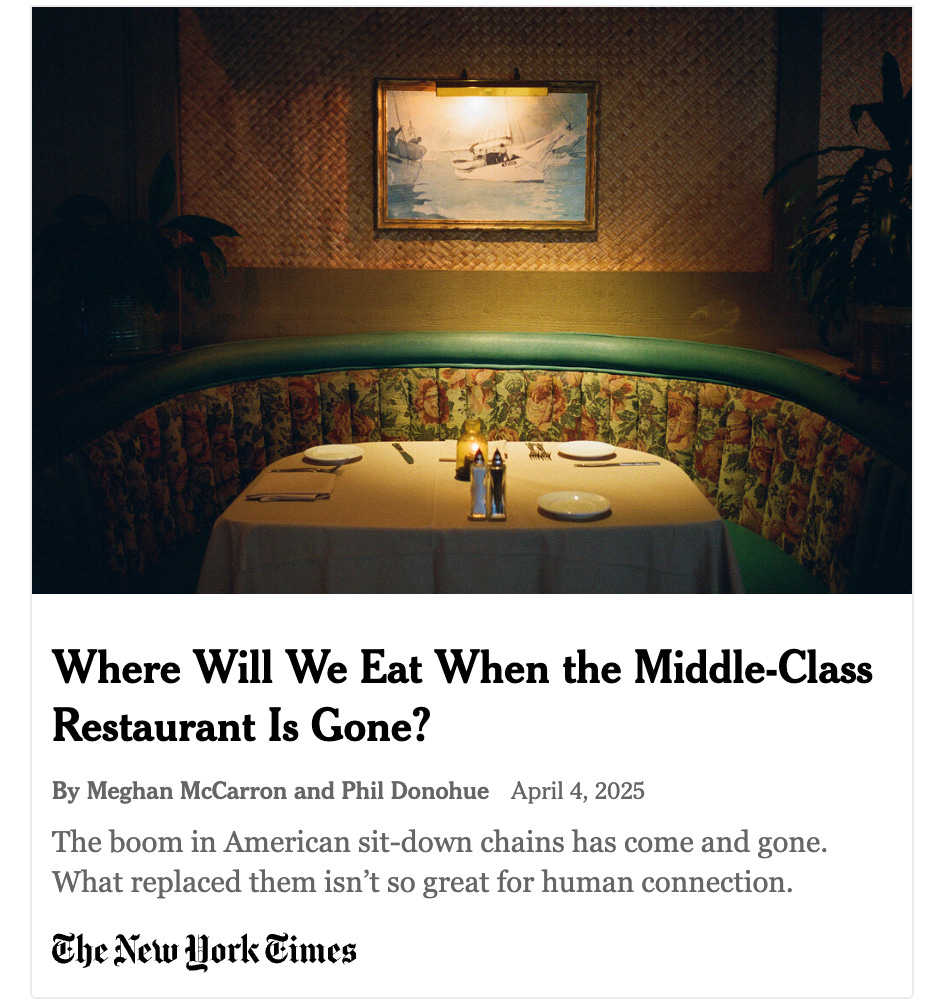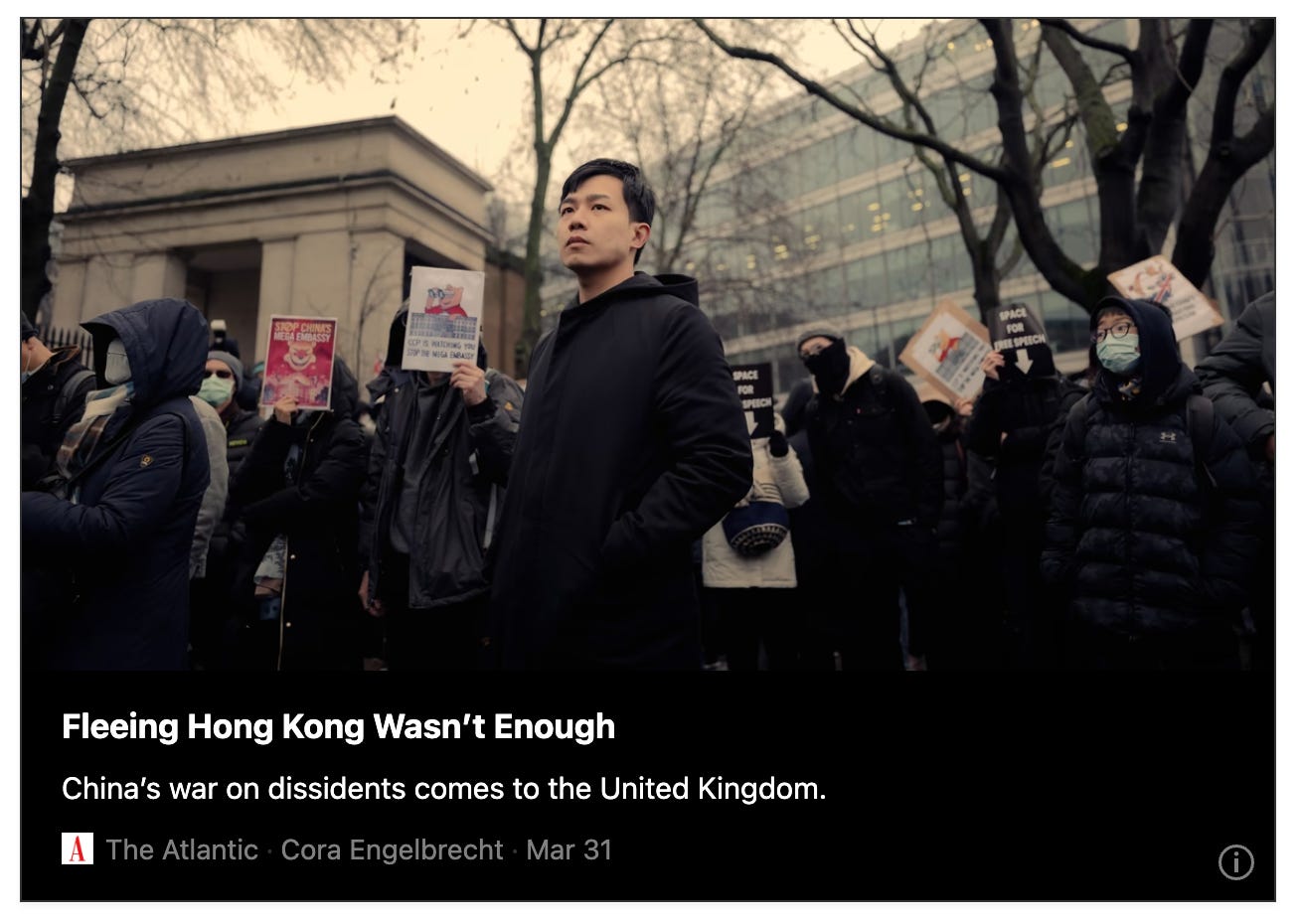Rusk Reads - The End Of Casual Dining, Hong Kong Diaspora Under Attack, & A 100 Year Old Hidden Antarctic Romance
Welcome to Rusk Reads. Every Sunday I will highlight three long-form article recommendations. These pieces will be meaningful, relevant, and thought-provoking.
This week is buffet style. Three pieces across time and genres.
Where Will We Eat When the Middle-Class Restaurant Is Gone?
By Meghan McCarron | The New York Times
Two blocks from my childhood home used to stand the cafe Soda Rock (there have been so many names changes place now I couldn’t tell you how many). You could get a drink, sandwich, and soup at the cafe for less than $6 dollars. 20 years later Soda Rock is transformed like most restaurants on the block to serve a $15 taco and a $20 dollar cocktail. McCarron explores the in-between space where now Americans virtually only choose between fast casual or expensive sit down when they eat out. What are the literal and less obvious costs associated with losing the local Olive Garden or sit-down pizza shop?
Fleeing Hong Kong Wasn’t Enough - China’s war on dissidents comes to the United Kingdom.
By Cora Engelbrecht | The Atlantic
The chilling effect is a well known metaphor in the free expression canon. At its core it the process of an adversarial actor who takes some action or threat of action to chill or deter you from acting or speaking out. If something is made cold or frozen it is less mobile. Thus the chilling effect. This timely article delves into Hong Kong dissidents in diaspora and how China reaches across oceans to to keep authoritarian pressure.
From Antarctica with Love
By Allegra Rosenberg | Atavist Magazine
A great hour of deeply researched and resonating reading for a cold winter morning. This is an epic piece spanning a race to the South Pole, WWI, & the quiet expectations of privileged English country life. This is also a testament to how folks survived in the Antarctic tents and trenches because of companionship. There are many moments that remind me of Oscar Wilde’s tribulations and “the love that dare not speak its name.”





